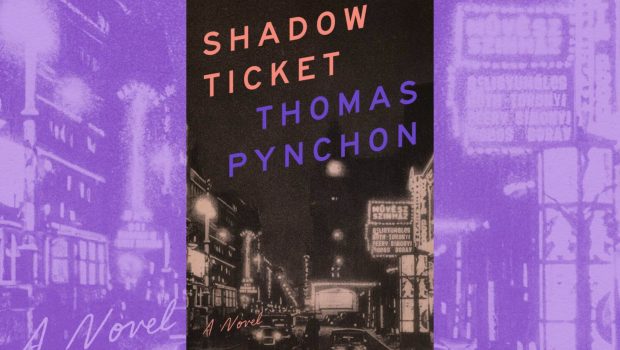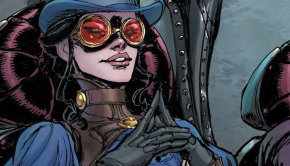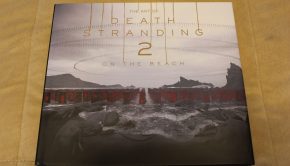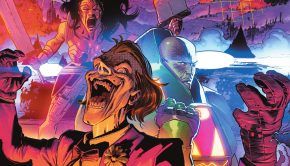Shadow Ticket Review
Classic Pynchon
Summary:
4
Neither A Stand-Out Nor Letdown
Pynchon invites interpretation. For fans, it’s the game within the game, the famously paranoid Pynchon’s puzzles. Read any high-level analysis of Pynchon and it’ll inevitably devolve into symbols and secret cults and sociopolitics. People can’t resist it, something about banana breakfasts, or maybe it’s just that paranoid thinkers like Pynchon enjoy reading Pynchon. Either way, Pynchon fans are a cult in their own right.
One review of Shadow Ticket says that the 30s setting is Pynchon’s way of saying the modern world has regressed, that Trump’s America mirrors the days ahead of the fuhrer’s rise and the second world war. It’s not a hard connection to make, our protagonist’s Uncle Lefty is spouting classic conspiracy stuff every time we see him. Stuff like “the Jews who control the movie business only allow footage that will make him look crazy or comical, funny little guy, funny walk, funny moustache, German Charlie Chaplin, how serious could he be? But there also exist other Hitler movies, yes, some even filmed in color, home movies, a warmer, gayer hitler…”. It’s hard not to make assumptions and catch intimations when the characters are so political, so unusual, but I’d say that’s Pynchon’s bread and butter.
Still, I’ve seen fans take the overanalysis even further. There was a post on Twitter about line mentioning the Bowling Ball Hospital. The poster took that line and pondered on the abbreviation. B…B…H… Type that into Google and you get ”Brown Brothers Harriman”, one of the world’s biggest investment firms (Now we’re getting somewhere). Of course the poster didn’t get any further than that, because there really is nothing to it, but like diehard Kubrick fans, Pynchon fans don’t believe in coincidence. Every word, phrase, and even omission means something. They’re poised to jump down the throat of a Pynchon book and having waited over a decade for this one, they’re rummaging around its guts already.
Now that’s not to say that Pynchon doesn’t invite a bit of this. He’s esoteric. There’s a throwaway line about immigrants arriving at Ellis Island to be given jello molds in the shape of U.S. landmarks. An odd inclusion, one that might have people scratching their heads, wondering if it was a euphemism or a plot device to remember for later. The truth is, that was a real thing, a minor historical fact that has no bearing on the story yet Pynchon includes it for a little immersion.
My reading of Shadow Ticket isn’t so exciting. Sometimes a spade is just a spade. Is it so hard to believe that after a long career and a thirteen year hiatus Pynchon is writing a classic detective novel for the fun of it? It’s not his first detective novel, but the time period is extra-campy for him, and he’s not doing it hardcore like Mason & Dixon’s 784 pages. Shadow Ticket is jaunty, it’s bubbly, it’s silly. It’s nothing we haven’t seen from Pynchon before, and everything we love about him– the cavalcade of characters, twisting, turning, many-threaded plots that play up our confusion, and the general oddball lore. One to enjoy, maybe even introduce a friend to Pynchon with, but not one to obsess over.
“Just so long as you ain’t another one of these metaphysical detectives, out looking for Revelation. Get to reading too much crime fiction in the magazines, start thinking’ it’s all about who done it. What really happened. Hidden history. Oh, yeah. Seeing all the cards at the end of a hand. For some, that kinda thing gets religious mighty quick.”
– Lew Basnight, Shadow Ticket, P.45







